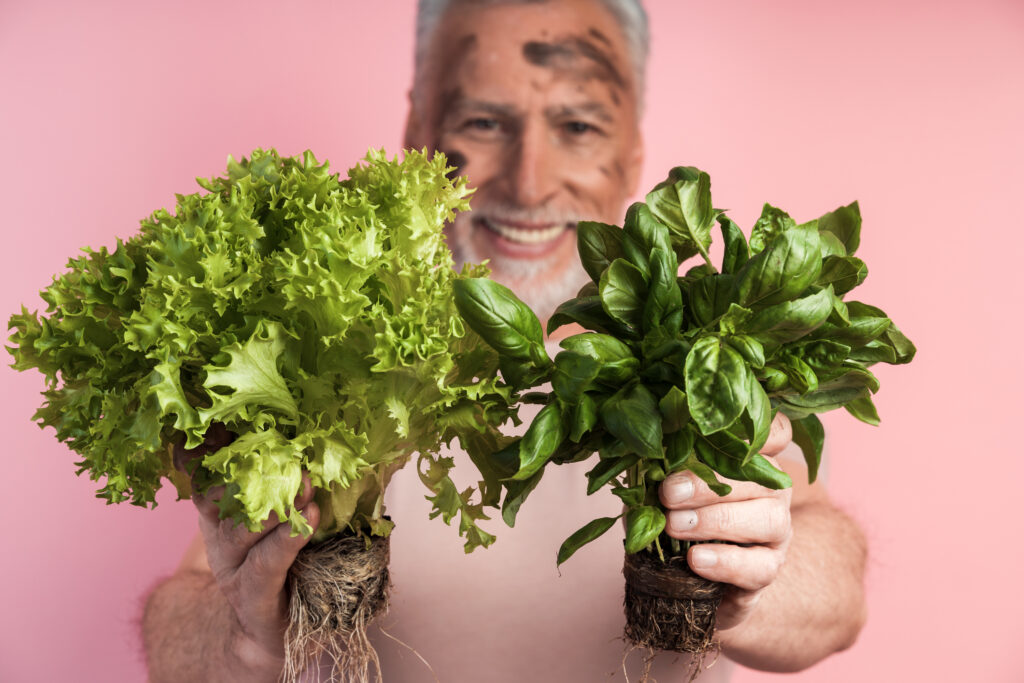In the bustling environment of urban living, finding ways to connect with nature can be a challenge. The reality of urban living in the UK often includes spending more time indoors due to weather constraints, demanding work schedules, and the fast-paced rhythm of city life. The constant companions of stress and pollution, pose significant challenges to the resilience of your immune system!
So what to do? A recent study has highlighted a promising solution: urban gardening. Urban gardening is the practice of cultivating plants and crops in urban environments such as cities, rooftops, balconies, or community gardens.1https://www.earthed.co/blog/urban-gardening-is-the-practice-of-growing-plants-fruits-and-vegetables-in-urban-areas/ This practice not only provides access to fresh produce but can also significantly benefit your health by enhancing your immune system through increased microbial exposure.
The study’s insights
The research conducted by the University of Helsinki2https://www.sciencedaily.com/releases/2024/05/240523112557.htm focuses on the impact of urban gardening on human health, particularly concerning the immune system. In just one month, urban indoor gardening significantly increased the diversity of bacteria on participants’ skin and was linked to higher levels of anti-inflammatory cytokines in their blood. These cytokines are crucial signalling molecules that help reduce inflammation and promote immune regulation, contributing to a healthier immune response. The participants used a growing medium rich in microbial diversity, mimicking the natural composition of forest soil. The study suggests that urban gardening can expose you to a variety of microbes present in soil and plants. This microbial exposure is crucial in developing and maintaining a robust immune system, leading to a stronger immune response and potentially lower the incidence of allergies, autoimmune diseases, and other inflammatory conditions – sign me up!
How does microbial exposure enhance immunity?
Your immune system relies on regular interactions with various microorganisms to function correctly. This exposure helps the immune system distinguish between harmful pathogens and beneficial microbes. If your immune system lacks these interactions, which is common in sanitised urban settings, this can lead to an under-stimulated immune system, increasing susceptibility to inflammatory and allergic diseases.
Urban gardening reintroduces these essential microbial interactions. When you garden, handle soil, plant seeds, and harvest crops, you come into contact with a wide array of bacteria, fungi, and other microorganisms. These microbes play a critical role in training the immune system, enhancing its ability to respond effectively to real threats.
The study even suggests the idea that planter boxes filled with microbially rich soil could be introduced in kindergartens, schools, and hospitals, particularly in densely populated urban areas. As development of the immune system is at its most active in childhood, this creative idea is both excellent and almost effortless. We’re all about getting the kids involved at CG!
What other health benefits does microbial exposure offer?
Beyond boosting the immune system, urban gardening offers several other health benefits:
- Mental health: Gardening has been shown to reduce stress, anxiety, and depression. The physical activity involved, and the satisfaction of nurturing plants contribute to improved mental well-being. If you have ever practiced gardening, you are probably away of these wholesome benefits.
- Physical activity: Gardening activities can provide light exercise (think kneeling to standing, lifting bags of soil, carrying pots etc.), which can help improve cardiovascular health, increase strength, and enhance overall physical fitness.
- Nutrition: Growing your own fruits and vegetables ensures access to fresh, organic produce, which can improve dietary quality and nutritional intake.
- Social interactions: Community gardens foster social connections, providing a sense of community and shared purpose, which can positively impact mental health.
To learn more about the connection between the soil and your gut, watch this 3-minute video to blow your mind a bit….
Steps to start urban gardening
Starting an urban garden can be straightforward!
- Assess your space: Determine the available space you have for gardening. For limited space, consider using containers to grow plants on balconies, rooftops, or windowsills. Utilise vertical space by growing plants on walls or trellises, an efficient solution for small areas.
- Choose suitable plants: Select plants that thrive in your specific environment and space constraints, such as herbs, leafy greens, or compact vegetables.
- Gather supplies: Pick up your gardening supplies like containers, soil, seeds or seedlings, gardening tools, compost or fertiliser. Ensure you use high-quality soil to maximise microbial diversity and plant health. The positive results from this study were observed with forest-type soil, while the peat-based medium showed no similar benefits.
- Prepare your containers/beds: If using containers, ensure they have drainage holes and fill them with quality potting mix. For beds, prepare the soil by loosening it and adding compost for nutrients.
- Plant your garden: Plant your chosen seeds or seedlings according to their specific needs for sunlight, water, and spacing.
- Water and maintain: Regularly water your plants as needed and monitor for pests or diseases. Consider mulching to retain moisture and suppress weeds.
- Community gardens: Consider joining or establishing a community garden in your neighbourhood to share resources and knowledge with fellow gardeners.
Urban gardening is a practical and rewarding approach to fostering better health in our increasingly urbanised world. Whether through a community garden or a few pots on a balcony, the act of gardening can bring significant health rewards. Check out Shann’s Magic Garden Series and Arabella’s Herb gardening: DIY at home!.
Any questions? Contact one of our Nutritional Therapists via live chat, weekdays from 8 am to 8 pm.
References
- 1
- 2















